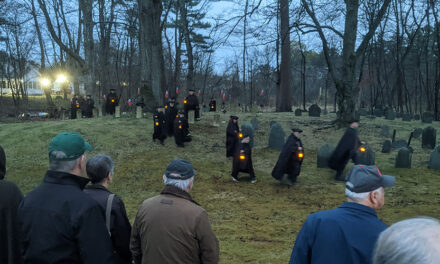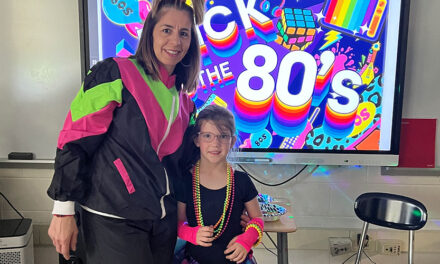Published March 6, 2019
By DAN TOMASELLO
LYNNFIELD — The School Enrollment and Capacity Exploration Committee is looking to continue monitoring school enrollment and possibly work with an architect down the road, SECEC Chairman John Scenna told the Board of Selectmen on Feb. 27.
Scenna recalled that the SECEC, commonly referred to as the space committee, was formed last year to conduct an enrollment study in the wake of a recent increase in enrollment at the elementary schools, particularly Summer Street. After former SECEC member Gary Romano initiated an electronic survey to the parents of preschool-age children, Scenna said the SECEC hired the New England School Development Council (NESDEC) to conduct an enrollment study.
“NESDEC performed a professional demographic study with enhanced enrollment projections,” said Scenna. “They looked at our existing enrollment and then projected out 10 years. The longer we go out with a projection, the less accurate it will be.”
In order to compile the report, Scenna said NESDEC reviewed construction permits; home and condominium sales; interviewed Town Hall employees and realtors; examined birth rates; and analyzed the number of children currently living in multi-family housing developments. NEDEC also took into account potential developments on the horizon that have not been approved.
Superintendent Jane Tremblay gave an overview of how the projected school enrollment would fit into existing classrooms at the elementary schools.
Tremblay noted the School Committee’s class size guideline stipulates that kindergarten and first grade classes have between 18 and 22 students. The class size guideline for grades 2 and 3 is between 20 and 23 students, and the guideline for grade 4 is between 20 and 24 students.
The superintendent said there are 25 classrooms at Summer Street School, two of which are preschool classrooms. She said there are 24 classrooms at Huckleberry Hill School.
“We have 49 classrooms for the elementary schools,” said Tremblay.
Tremblay projected the number of students in each class while using NESDEC’s data. She anticipates there will be 21 classrooms used at Huckleberry Hill for the 2019-2020 school year. Tremblay projects there will be 20 classrooms used at Summer Street.
The superintendent said school officials will have a better idea about kindergarten enrollment later this spring after the district’s kindergarten information night and kindergarten orientation takes place.
Tremblay noted the enrollment projections could change at any time. She noted six second graders moved out of Summer Street School at the beginning of the school year.
“That was something we could not predict,” said Tremblay.
Tremblay anticipates there will be 41 classrooms needed for the two elementary schools next year. She projects there will be 43 classrooms needed for the 2020-2021 school year.
“We are projecting to be okay for next year and the 2020-2021 school year,” said Tremblay. “It starts getting a little dicey after that.”
Tremblay projects there will be 43 classrooms needed for the 2021-2022 school year. She anticipates 45 classrooms will be needed for the 2022-2023 school year. She projects 46 classrooms will be needed for the 2023-2024 school year.
“According to the data that I have, we will run into trouble as we get into 2022-2023,” said Tremblay. “We are really pushing the envelop in 2020-2021 and 2021-2022 because we have to designate two of the classes for art and two of the classes for music.”
Tremblay noted the enrollment projections are subject to change.
“We could have 30 kids move out or 30 kids move in,” said Tremblay. “Anything can happen, but this is what we are projecting.”
Selectmen Chairman Dick Dalton inquired if the enrollment projections can be updated each year. Tremblay said yes.
Dalton also asked when the enrollment spike will reach a “breaking point” with more space needed.
While working as a classroom teacher at Huckleberry Hill, Tremblay said the elementary school had “art-on-a-cart and music on the stage” before the renovation project took place in the early 2000s.
“That is when we gutted the elementary schools and put the additions on the elementary schools,” said Tremblay. “It allowed more room. It all comes down to what is palatable for the town and what is palatable for the schools. Those are tough, difficult conversations to have. It would behoove all of us to start having those conversations within the next two years so we are not blindsided by it and can plan for it.”
Selectman Phil Crawford said relocating the preschool back to the School Department’s central office would not be a long-term solution and would only be a temporary fix.
“We have to keep an eye on this,” said Crawford.
Tremblay said school officials decided to move the preschool to Summer Street in order to provide students access to critical programs as well as provide direct oversight.
Scenna said the SECEC voted unanimously to recommend that the selectmen keep the space committee in place for the next year. He also said the committee wants to continue examining capacity at the two elementary schools.
“We are leaning towards making a recommendation about possibly bringing in an architect to work with the committee,” said Scenna. “The middle school and the high school have the capacity to deal with these numbers. We are really concerned about our elementary schools after next year. It could be program changes such as art-on-a-cart or having a music room shared with an art room in order to gain an extra room. We want to work with the school administration to come up with some ideas.”
If the space committee recommends bringing in an architect, Scenna envisions the architect “would not only look at the capacity of the buildings but the building envelope.”
“We would like to continue our work next year and possibly bring in an architect to start to look a little more in-depth at these buildings to see if we can gain some space,” said Scenna.
Selectman Chris Barrett thanked Scenna, Tremblay and his fellow SECEC members for their work. He said some of the program changes Scenna highlighted would have a “negative” impact on students.
“Speaking as a parent, I think it’s worth avoiding that,” said Barrett.
After the discussion, the selectmen unanimously voted to extend SECEC’s term for another year.




